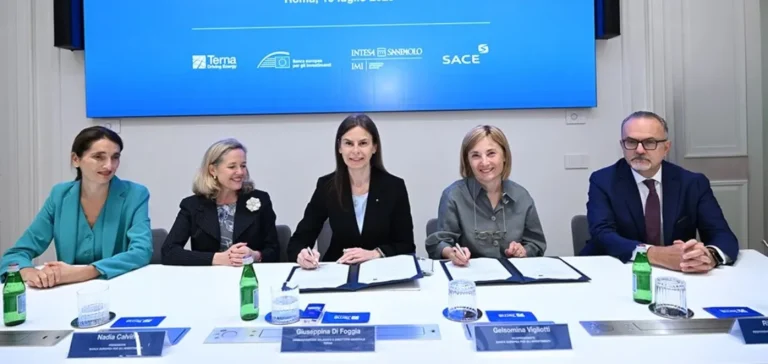Terna S.p.A., operator of Italy’s electricity transmission network, has announced the completion of guarantee agreements as part of the financing for the Adriatic Link project. The total value of the transaction amounts to approximately €1bn ($1.08bn), according to a joint statement from the European Investment Bank (EIB), Terna, SACE S.p.A. and Intesa Sanpaolo. The primary objective of this initiative is to support the implementation of the new electricity corridor between the Marche and Abruzzo regions.
A multi-party guarantee mechanism
The transaction involves the participation of SACE S.p.A., the Italian export credit insurance company, which is listed in the related parties register of Terna S.p.A. According to Terna, SACE provides a counter-guarantee to secure the financing conditions provided by the European Investment Bank. Intesa Sanpaolo acts as the financial partner institution in structuring the transaction.
The total value of the guarantees granted exceeds the materiality threshold set by current regulations, classifying the transaction as a major operation according to article 6 of the Italian Securities and Exchange Commission (Consob) regulation. The transaction was reviewed by Terna’s advisory board and related-party transactions committee.
Regulatory validation and market conditions
Terna specifies that the guarantees are considered ordinary transactions executed at market or standard conditions, in line with article 13 of the Consob regulation on related-party transactions. As a result, the operation was expressly excluded from the standard procedure applied to transactions between related parties.
The Adriatic Link project aims to strengthen the resilience of the Italian grid and improve connections between regions on the Adriatic coast. According to project partners, the establishment of this corridor is of strategic importance for national energy security. Terna notes that transparency in governance and the involvement of major institutional partners have been ensured throughout the process.
“This operation confirms the commitment to support the evolution of the Italian electricity system through a robust financial structure in compliance with regulations,” Terna stated in its release on July 12.






















